Jordan Stephens is raving topless in front of a packed auditorium, strobe lights bouncing off his tattooed chest. His body twists and gyrates to the music, his eyes are squeezed shut like a man on the cusp of spiritual ecstasy. Several hundred people watch in silence, myself among them.
Where is he at this moment? In one sense, the answer’s straightforward: he’s on stage at the Young Vic, playing the titular character in a new production of Entertaining Mr Sloane. But where’s his mind?
Is he back on stage with Rizzle Kicks, the hip hop duo that propelled him to fame and fortune some 14 years ago? Is he tripping through a kaleidoscopic out-of-body experience, like the time he smoked DMT with a deep tissue masseuse? Is he mentally writing the follow up to Avoidance, Drugs, Heartbreak and Dogs, the bestselling memoir which furnished me with the DMT anecdote?
None of the above, according to Stephens. “I'm just vibing to the music,” he says. “There's a very subtle story of the dance turning into a kind of nightmare.” Fair enough, even if Stephens and the production itself have received dream reviews. Whether pop star or writer, presenter or podcaster, Stephens commits his all to a project. “I've crossed into so many different disciplines in the last five years of my life,” he says. “I just want to try and do my best in the time that I'm in things.”
I met him two days after press night. The Young Vic kindly gave us the run of the theatre for the photoshoot, then we retired to his dressing room to discuss a remarkable career that has encompassed absolutely everything by the age of 33. Published last year, his memoir explored the fallout from a breakup in his late twenties. Now he’s in a better place and a committed relationship with pop star Jade Thirlwall.
Time to slow down? Don’t be silly.
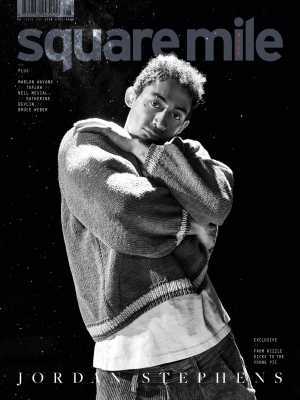
Square Mile: How did your debut play come about? Did they reach out to you?
Jordan Stephens: Yeah. I got asked to audition – I've only ever had three auditions, I've been acting for about 12 years. So yeah, it was odd. They had tried to cast the character and couldn't find anyone, so they widened the nets and they caught me.
SM: You’ve done music, TV, podcasts, presenting, writing. Where does theatre rank on the difficulty scale?
JS: It is up there. I'm only on the second week so I don't know what I'm going to feel like at the end of it. I can't believe that I have to do this show 40 times. Obviously I've toured before, I dunno why that feels different. I guess I'm engaging with the audience with music. I have a reasonable amount of control over what does and doesn't happen. Whereas with a play, I'm ignoring the audience, and you can do everything really well and not elicit a response that you would expect – but even the response that happens isn't necessarily a reflection of not enjoying it. I'm really learning all this stuff in real time.
I've stepped into an arena that has a massive amount of heritage and reputation and craftsmanship and there's some serious theatre people who don't fuck about this stuff and who will have all kinds of preconceived ideas about me. A writer-slash-musician just walks onto the stage at the Young Vic in my first role. That's fucking insane. So I'm aware of all that.
I've crossed into so many different disciplines in the last five years of my life – but I just want to try and do my best
I'm trying really hard to show people that I'm taking it seriously. That was something I agreed with Nadia when we were auditioning – I wasn't going to get up there. For the first two weeks I barely even had my phone on. I had a burner phone. I was trying to learn, watch films from that era. I studied Joe Orton quite a lot.
It really is a craft. There's no money in theatre. This isn't a pursuit of wealth accumulation. It is an unbelievable amount of energy and time at minimum wage, which I'm very fortunate for that to be okay. And a lot of actors will willingly do it because you're sitting with a character and a piece, sculpting something over time. It's really quite surreal. TV and film, you're in there, you practise, you rehearse, you shoot it and it's done. If I went on last night and something went wrong and it pissed me off, I can do it tonight and do it the best ever. It is a constant sculpting.
SM: What surprised you most about the whole experience?
JS: The thing I'm currently most surprised about is the contrast of audiences. I could not believe some of the things I've heard and seen. I don't see a lot of the audience but the front row I can see because they're quite lit. For those who aren't aware reading this, we’re in the round, which is especially hard apparently. You have to do something called back-ting, which is making sure that you are aware people are behind you. There've been some really wild sounds occurring during the play, which I've not been prepared for.
SM: Anybody farted really loudly?
JS: No one's farted. A lot of coughs, a lot of sneezes, some really unfortunate timing of coughs and sneezes – literally on punchlines or really important pieces of information. People have dropped phones, glasses, people have had phones go off for an uncomfortably long amount of time. I've seen someone having the time of their life in the front row and they were sitting opposite someone who was genuinely about to fall asleep. It's wild. It is really showing me how immensely subjective the experience can be for people.
I've crossed into so many different disciplines in the last five years of my life, with most of my love being entangled within writing, but I just want to try and do my best in the time that I'm in things. I felt a similar thing with kids' books.
I stumbled into writing this kids' book [The Missing Piece] because I wanted to try and tell the story and that's the only way I could find to write it. Suddenly I’m in the world of kids books. There's a hierarchy and there's a way of being and there's a way people talk and present themselves. Some people are just kids book writers. A lot of people are just theatre actors.
SM: A lot more money in kids’ books…
JS: Well, there can be. But I want to write a timeless kids’ book. Writing a timeless kids book is nearly impossible. I think one of the biggest selling kids’ books last year was The Very Hungry Caterpillar. That shit's been out for 35 years.
You're up against Julia Donaldson, who's one of the most wonderful women I've ever met. Her late husband, Malcolm, they're incredible. They're very supportive actually of me bizarrely. But she's the goat. You step into this world, how are you going to leave your mark?
I feel that similar thing in theatre. I want people who love theatre to know I don't take it lightly. I want them to know that I haven't just walked into the Young Vic thinking that it's any other Tuesday. I've given up three months of my life for this.
SM: What drew you to the play when you were reading it?
JS: It's just dark, isn't it? Dark humour. It’s called Entertaining Mr. Sloane and I got an email saying, they want to see you to play Sloane. I won't take that lightly.
SM: Do you see any of yourself in Sloane?
JS: No, I don't actually. There's a book called The 48 Laws of Power, which has an unfortunate reputation because it's embraced by slightly disillusioned men. It's a study of machiavellianism, basically, and it's quite a stark and crass, cynical, arguably honest reflection of how this world works – patriarchal capitalism. And I really struggle when I read it because it goes against what I believe in life. I want to read it, I want to understand how people act.
Sloane is a character who's driven by leverage. Every character in play is driven by, how can you leverage a person? How can you exploit them? What do you need to do or pretend to do in order to access weak points? I might do that on an unconscious level as Jordan, but that's certainly not what motivates me. I wouldn't enter into an exchange wanting to exploit someone, and maybe I'm in denial and some people will think I'm deluded.
In fact, one of my best friends thinks that I think too kindly of people, I believe even if someone's done something fucked up, it is because of a lack of love or a desire for love. So I can often end up in tricky situations because I like to see people's good sides.
SM: There are worse qualities to have…
JS: Yeah. But I do get fucked over. I've been fucked over loads in life. I've been extorted, stalked, betrayed. But that's the energy I want to radiate. Sloane's not like that. Sloane is a psychopath. He is a chameleon. He doesn't have any real opinions. There's no way of knowing who or where he is coming from, what he is. Everything he says in the play is reactive, literally everything. There's not a single lie in the play that you can believe to be true. Even him being born in an orphanage, he says that three minutes after Kath says that she lost her child.
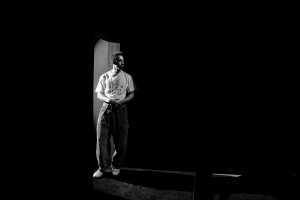
SM: For a playing first performed in 1964, it feels very relevant…
JS: Unfortunately human beings haven't evolved much. There are people out there who are driven by desire for power. I think it comes at the expense of the soul but it's very real. And you can win like that. I mean, the system is set up to win like that. You don't have to be a good person to be successful in this world. It's the opposite. I really do think that.
SM: I think good people can succeed. You seem like a good person who’s done very well…
JS: I would say in relation to the actual overall scope of the world, I'm far from very successful. By today's cost of living standards, I'm definitely rich. I feel so much more secure than the large majority of our country. I'm aware of that. But I'm also aware of the other doors. I've seen all the doors, and I always feel like I'm four moves away having nothing.
SM: I guess it depends how you measure success…
JS: Hey, if we're measuring success by connection and all that shit, yeah, I'm buzzing. But that's what I mean. That's not by capitalist standards. Look, I'm in a great relationship. I've got two sick dogs – as in they're great dogs – and I get to do what I love. I'm blessed. In that sense, I'm definitely successful.
I just mean accumulation, exploitation, the hallmarks of this system. It's not required of you to have really well-founded deep connections to the people around you in order to prosper financially. That's my main point. If you want to go to the city and be a successful trader, you're definitely not going to be able to maintain loads of wonderful relationships in your life because the more you work, the more you gain.
SM: You published a bestselling memoir last year. What did you discover about yourself while writing that book?
JS: Well, I didn't think I could write a book. On a basic level, that was an insane achievement for me. So that was really encouraging. When I was in my late teens, I had this real spark for music. I was so driven by making music and making albums and performing, and I really loved it.
I had quite an extraordinary early career with that. That had these pros and cons, which I've spoken about a lot. Writing this book was the first time I felt a spark akin to what I felt when I was a teenager. Obviously I adore this play and I love doing it. I know the second this stops, I'm going to start writing my next book, maybe even while I'm doing this play.
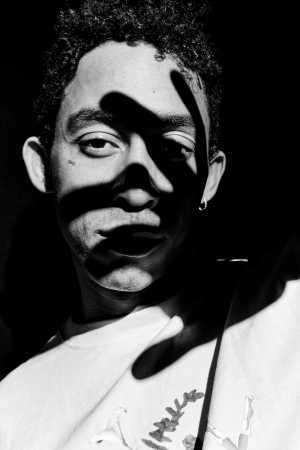
SM: Does that spark come from feeling like a teenager again? Or being at the start of a new creative journey?
JS: I guess it's the first time I've embarked upon a creative journey with the solitude that I felt when I was a teenager. I was quite an odd teenager, I had mates and that, but I used to sit in my room and make websites and shit. I’ve kinda tapped back into that energy again. But it was really useful. I could just write and write and eventually I'd send it to somebody and they'd feedback and it was just really wild.
I love making music. I really do. It is hard making music because if I had an idea I'd have to ring my friend – I could produce the music myself, which is a whole other conversation. But as it stands, I'd ring a friend who can play instruments to a great standard and then we would go to his studio. We'd have to make sure the studio wasn't rented out.
There's loads of variables and obstacles in between my little idea and the studio. Whereas with a book, I could literally, at one point I was feeling inspired to write something and then I'd have leftover inspiration that I'd put into another story at the same time. Even if I wrote one sentence a day, I would feel like I've achieved something.Some days I would write one sentence and then other days I would write paragraphs and some days I write pages.
It felt like such an excavation of this part of me. It was almost satisfying
My final session was a flight to LA, I wrote 6,000 words on this flight. That sense of feeling purpose, it is a human need. That feeling of having a goal, I've got a way to get to that goal and it's going to be difficult some days and some days it's going to feel brilliant. I loved that.
I didn't feel the flow state all the time. Maybe some people think that I'm being airy fairy when I say flow state. It's like in football, when I was a kid in football, there were a couple of goals I scored where I can't remember them. Literally it was like I had an out of body experience. That's what people consider to be flow state. A lot of men play football to not worry about things because you're so focused on this ball that your troubles disappear temporarily. Same with watching football probably. But for me, there was this one paragraph I wrote and I just remember just losing myself.
It was a scene where I'm at Carnival and I'm talking about the fact that I'm trying to contend with not telling the partner I betrayed about my betrayal and then I catch eyes with this girl. It makes me feel sick because I've just betrayed my partner. But I still feel excited by the idea of this connection. And it felt like such an excavation of this part of me. It was almost satisfying. It was like I'd put balm on a wound, even though it was quite gross to write. It felt soothing. And I love that feeling and I want that more.
And there's more challenges to come with writing. I would love to write fiction with the same vigour that I wrote the memoir. Also, the memoir is only six months of my life, so I could write a few.
SM: Yes, it’s unusual in being based around one specific incident and how it affected you.
JS: Listen, the music memoir can come whenever. Those memories weren't go anywhere.
SM: Did you intend to focus on the breakup when you started writing? Or did it fall into place naturally?
JS: I'd spoken to loads of people about that breakup. One of the things that happened to me when I went to therapy and did all these emotional trauma retreats was that I would end up engaging with people in my life and feeling like I could pass on some of the knowledge or the tools that I'd learned on these experiences. In doing that, I would often use my own experience to be more relatable. So I would end up telling the same window of my life. I'd show people that same window and then there was just one moment where I was like, fuck, maybe this is worth writing about.
Ideally, I wouldn't have even put it forward as a memoir. This is a story about heartbreak. The only thing that's important is that I had money because I really wanted people to realise how little that meant. I want people to know that you can be a fucking billionaire, bro – if you get your heart broken, the only thing you can do is pay for someone to help you understand how to deal with it. There's not like a heartbreak pill that costs a million pounds. Grief is human. The emotional world doesn't really give a fuck about the material.
SM: In the book, there’s a chapter on the viral Guardian article on the state of masculinity you wrote in 2017. How do you feel about masculinity in 2025?
JS: I could talk about this all afternoon, I’ll try to keep it succinct. The conversation's obviously shifted quite a lot. I think that the internet is making gender discussions very difficult. Gen Z boys who were too young to understand what was happening during that MeToo moment, they have been affected by it because they have grown up in a world where there was a negative connotation attached to just simply being male. We're kind of dealing with the repercussions of that now.
They have elevated the manosphere because they've sought refuge in it. I think millennials have done really well. The millennials I've seen who have become fathers have been incredibly positive. I mean, look, it's not going to be perfect, but I am actually optimistic about the future of men.
If we take the Kendrick Lamar versus Drake beef, that's a beef where two people were arguing over who's a better dad. That's a massive cultural shift. A decade ago that would never have happened. It would've been cooler to not be a present father. Dave spoke about suicide on his debut album in an unbelievably eloquent way for his age. You’ve got the rapper Ghetts talking about being a father and protecting women.
I'm a massive Kendrick fan. He's shown people what can come from therapy and building a family unit and being in touch with your shadow self. I can understand why people would lean into the horrendous aspects of the internet where all these conservative men are preaching all this regressive shit and it isn't nice. But I also think people need to remember to go outside and engage.
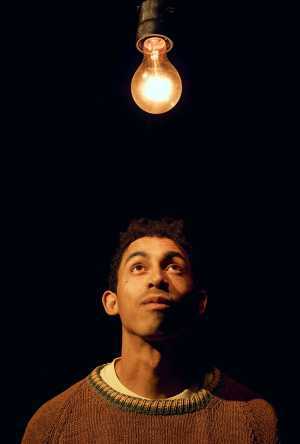
SM: Why do you think the likes of Andrew Tate have picked up so much traction in recent years?
JS: Look, I think it's a pendulum swing. MeToo was a pendulum. There's a lot of angry women, for good reason. There are going to be subsections, apparently there are actually grown adult men who agitate, which is wild to me. But I believe that anybody who's matured, who's genuinely matured, would find it impossible to take advice from somebody who is streaming 85% of his life. For me, that isn't like a conducive to a life of happiness that he supposedly preaches. I think the greatest commodity on the planet is privacy. That's the irony: people who are living actually harmonious lives aren't going to be fucking live streaming their life. It is the opposite, the antithesis of peace.
Boys and girls who were little boys and girls during MeToo, they're having these conversations and they don't understand any of the context. The girls don't understand any of the context. The boys don't understand any of the context. They're just saying things they see on the internet. They're saying that boys are pieces of shit. Boys are probably feeling confused by it, not realising that it's because of the actions of the men that have come before them.
If you were to look at a James Bond film from the seventies, it's not that far from what Andrew Tate is saying
Now we're in this bizarre zone where [these influencers] are the only people being happy about or positively promoting boys in masculinity in a way that seems appealing, which is important in terms of being strong, being decisive, being cool through their eyes. Andrew Tate is basically Batman in how he presents himself. He's got nice cars and shit, wears sunglasses.
I don't know if I'm mental here, I get why people are scared about Andrew Tate because he's on everyone's phones and they're repeating it in class. That's freaky. But if you were to look at a James Bond film from the seventies, it's not that far from what Andrew Tate is saying. In those films, women are dispensable. Life's about shooting and doing risky things, then leaving and being alone. These people just say it's cool to be a boy. But I think most people grow out of it personally.
SM: I guess teenage years are meant to be confusing. The difference nowadays is social media…
JS: Yeah, you're supposed to be a fucking idiot back then. But sometimes men don't mature, maybe even ever. I've seen grown men in their forties who've never let their heart break or never processed someone they lost. And those are the kind of people that can get sucked up in this radicalism because they haven't got the tools to deal with it. How can you be in your life, believing that half the world should be submissive? When you yourself are genetically half a woman?
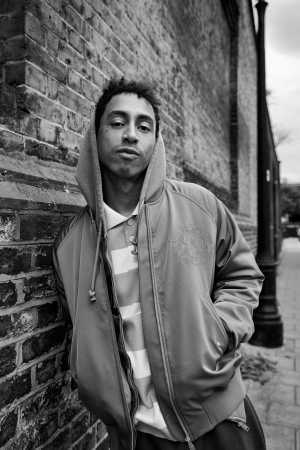
SM: What do you think your younger self would think about how it’s turned out?
JS: I've definitely surpassed all of my expectations.When I was a kid, I had this understanding that I was very self-destructive. I remember thinking when I was 19 or 20 that I was going to be one of these tragic cases. I would've done something stupid, showing off at a party and fucking jumped off a roof or some shit. I always thought that that was what I'd be like. So I've exceeded those expectations. I think the young me would be baffled that I've managed to weather whatever storm I went in and come out with this bizarre desire to be at peace. I never would've guessed that.
SM: Do you feel fully at peace now?
JS: No! It's an ongoing thing, isn't it? I've got loads of shit. It's human ego stuff that I deal with every day, but I'm so lucky. I never believed in love as a kid and it's amazing to be in a partnership full of love. I feel supported.
SM: I completely understand the importance of privacy but it’s very sweet how open and supportive you and Jade are about each other.
JS: Trust me, man, one pattern I've seen is some people who parade their relationships are often overcompensating for it being quite unstable behind closed doors. With me and Jade, definitely didn't come out the blocks like that. We're so integrated into each other's lives now, it is something that gets asked, isn't it? We're both doing our thing and it's kind of cool to see it, I guess.
My best friend has said that he's seen me go through all different types of states and he's just shocked – there was a time where I wouldn't have been able to sit still for five minutes and now I'm with somebody who I can just sit with. Me and Jade sometimes just sit in silence for hours. I can't even explain it! When we're on holiday, we just sit. She does a puzzle, I'm reading. That's the nearest to peace I think I've ever experienced.
View on Instagram
Entertaining Mr Sloane is playing at the Young Vic until 8 November. See youngvic.org
